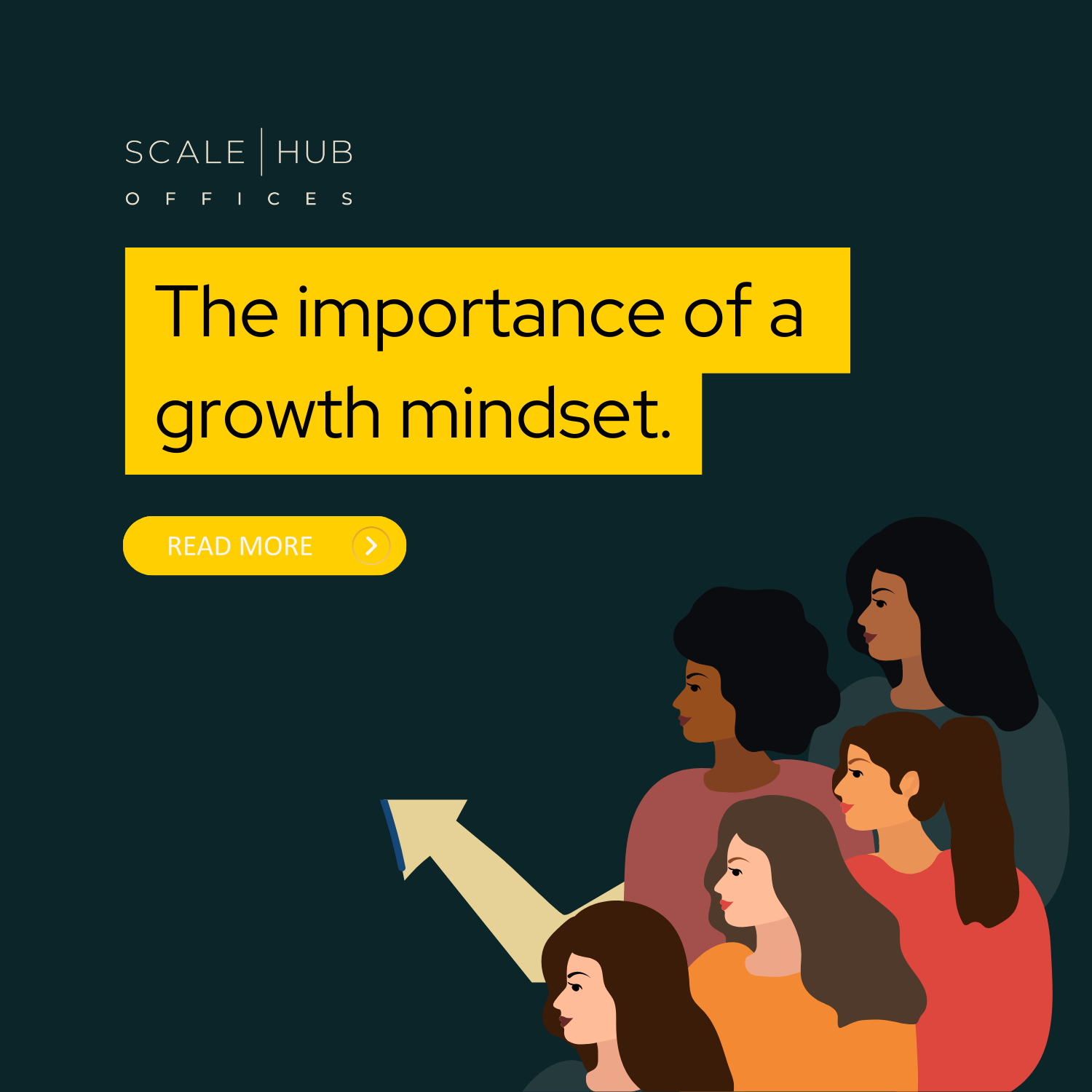
Anything is possible with the right mindset. You’ve probably heard this one before. Well, anything may be a bit of an overestimation, but that right mindset may certainly get you as close to your goals as possible.
But what exactly does “the right mindset” mean? And how does it apply to business and entrepreneurship? And how do we develop this mindset?
Since deciding on what is right and what is wrong – in any area of life – may lead to endless discussion, a much more helpful term for this right way of thinking is “a growth mindset”.
For a better understanding of the concept, we will look at what a growth mindset is and contrast it with its opposite: a fixed mindset.
We’ll also explain why a growth mindset is such a vital tool for running a successful business. Let’s jump right in.
What is a Growth Mindset?
To understand what a growth mindset is, let’s take a quick look at the history of the term. It was first coined by Stanford psychologist Carol Dweck and her colleagues. In her 2006 book ‘Mindset: The New Psychology of Success’, Dweck defined a growth mindset as the belief that you can develop your basic skills and abilities through dedication and hard work. A growth mindset indicates that you’re focused on acquiring more knowledge and getting better at what you do.
Dweck and her colleagues studied the psychology of the mind, and how what people think about themselves can impact their lives and choices. She found that people with underlying beliefs that they can experience growth and development, fare better in their endeavors than those who don’t.
But how does one know if they have a growth mindset? Here’s a start:
- You believe that you can change and grow
- You acknowledge that you can achieve your goals if you persist and don’t give up
- You see challenges as an opportunity to learn more about yourself, your abilities, and the world around you.
- You don’t see failure as an excuse to quit but as an opportunity to try something new.
- You believe in learning. You prefer to learn new things or new ways of doing things, instead of assuming that you can never do it.
Got the idea?
Let’s take a look at the fixed mindset.
What is a Fixed Mindset?
A fixed mindset is the belief that people’s personalities are static. And as such, things like creativity, intelligence, and moral character cannot change. It is believing that everyone has a level of intelligence inherent in them, which directly affects the degree of success they can attain.
In essence, a fixed mindset is the belief that there can be no success beyond the capacity of your inherent intelligence. This kind of mindset avoids failure and is afraid to try something new or take risks.
The major differences between a Growth Mindset and a Fixed Mindset
It’s pretty evident how different a growth mindset is from a fixed mindset and why opting for a growth mindset will get you further in life. Let’s explain the differences with some more examples.
1. Views on intelligence, abilities, and talents
A growth mindset believes that intelligence, abilities, and talents can be learned. It means knowing that intelligence is not just inherently gained but can be increased by learning.
A fixed mindset believes that traits like intelligence, abilities, and talents are inherently stable and static. As such, they cannot change over time.
2. The ability to improve
The growth mindset believes that people can improve through effort. It’s understanding that you can learn new skills and get better with constant practice.
A fixed mindset on the other hand, assumes that there are certain skills that a person does not have and cannot get because it does not come naturally to them. For instance, an artistic entrepreneur may be unable to handle the financial aspect of their business because they think they don’t have it in them to handle financial statements.
3. Facing challenges
People who have fixed mindsets see challenges as destructive and fatal, because of the belief that if they don’t already have the skills or intelligence to carry out a task, there’s no chance of progress.
A growth mindset reckons that there can be an improvement. It means that you believe in facing challenges head-on. Therefore, you’re ready to gain the knowledge and skills necessary to succeed at any given task.
With a growth mindset, you’ll see every challenge as a learning opportunity.
Work that Growth Mindset for your business
The size of your business doesn’t matter, having a growth mindset will help you run your business better at any stage. Here’s why:
Challenges
If there’s anything constant in life, it’s challenges. Life keeps throwing them at us at every corner. This is particularly true for businesses, and yes, maybe even more so for start-ups and scale-ups.
To be able to face those challenges head-on is the only way to achieve success. Seeing opportunities where others would give up, eventually possibly getting more from the challenges than you anticipated.
A perfect example of how a growth mindset can make or break a business is the pandemic effects. During the COVID-19 pandemic and resulting lockdown, many small businesses suffered and even died.
However, some small businesses leveraged online marketing and home deliveries. Now, post-pandemic, these businesses are thriving and are using the strategies from the pandemic to grow their business operations.
Motivation to Improve
Two key features that come with the growth mindset are resilience and persistence. Learn from your (and other people’s) mistakes and adapt and improve as you go along. Push beyond what is comfortable.
Learning
A growth mindset welcomes learning.
For instance, as an aspiring entrepreneur, you need certain basic finance skills to help you with things like creating your business budget and preparing financial statements.
You may think that since you’ve never been good with mathematics and figures, you’ll be unable to handle your business’s financial statements. But a growth mindset may make you learn the financial skills you need and practice them until you’re able to efficiently (or at least sufficiently) handle your business’s finances.
Contentment
Having a growth mindset will help you stay content and happy with where you are – even as you work towards getting to a better place. You won’t feel defeated when you see other businesses or competitors doing better than your business.
Instead you’ll dwell positively and constructively. You’ll be eager to learn from the experiences of others. Rather than feeling anxious, you will identify the areas where you need to change and grow and take action.
Handling Criticism
A growth mindset will enable you to handle criticism well and thrive on feedback and input from different stakeholders in the business scene. You’ll need to learn to seperate unconstructive reviews from the useful ones and work with those.
How to apply a Growth Mindset in business
The growth mindset may come easier to some than others but it’s something that, if practiced, will come more naturally over time. Understanding the difference between the mindsets will help you identify a fixed mindset on crucial moments in life.
Think you’ve got a fixed mindset? Commit to making small shifts in your thinking. You can learn to develop a growth mindset one step at a time.
If you face challenges that you’re not sure about tackling, instead of feeling discouraged or thinking negative thoughts, seek for ways to learn to handle such challenges. It’s an opportunity to learn.
When you try something, and it fails, don’t give up. Often, the difference between a successful business and an unsuccessful one has been the number of times the different business owners were willing to keep trying. Your efforts matter.
The journey to getting the results – good or bad – is as important. It can tell you what steps you need to change. Once you acknowledge that growth will not come at once, you will be able to show gratitude for the little aspects where there is some growth. Gratitude will help you to stay positive.
Anything is possible with a growth mindset?
Nope, still not true, but it seems like a nice way to develop in your professional life.



